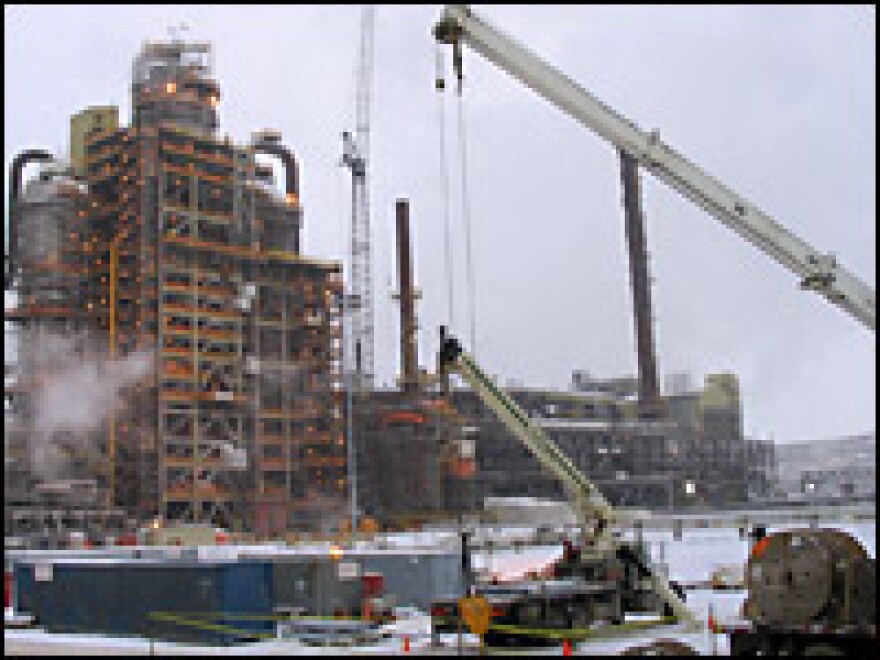
Rising demand for oil -- and the resulting rise in prices -- means that the United States is increasingly looking to Canada for crude.
In Alberta, large deposits of oil sit in the ground in the form of the tar-like substance called bitumen.
The town of Fort McMurray is a hub for the extraction of bitumen and its energy-intensive conversion into synthetic oil.
The oil company Shell has been digging up bitumen near Fort McMurray for about two years. The pit it is working on is now as much as three miles wide and 200 feet deep.
Giant electric shovels dig up the earth and dump it into 400-ton trucks -- said to be the largest in the world -- that cart it off for processing. It takes two tons of the Canadian sand to make just one barrel of oil.
The oil operation has been a boon for Fort McMurray and its people. But some observers are worried about the facility's impact on the environment.
After processing the sand to extract its oily component, the gigantic holes dug in the earth are refilled and planted with trees. But the refilled mine pits rarely match the original terrain, and replanting programs so far have resulted in forests that resemble Christmas tree farms.
Yet preservation isn't the biggest issue. Oil companies are moving away from open-pit mines. Instead, they are starting to inject steam into the ground in an effort to reach deeper deposits of bitumen.
The steam melts the tar enough for it to be pumped up to the surface.
Whatever the process used, it takes a great deal of energy to recover bitumen and turn it into oil. An enormous amount of greenhouse gases are released in the process.
In fact, making oil from tar sands produces two or three times more greenhouse gases than producing conventional oil.
Critics say that this means Canada will not be able to meet its obligations under the Kyoto Climate Change Treaty, an international agreement to reduce greenhouse gas emissions.
But it's not environmentalists who are most likely to put the brakes on operations like those outside Fort McMurray. It's the cost of making the oil that may put a damper on the boom.
Natural gas is used to supply the energy used in the making of synthetic oil. And natural gas is becoming an increasingly valuable commodity. Life could slow down again in Fort McMurray if that trend continues.
Copyright 2022 NPR. To see more, visit https://www.npr.org.


